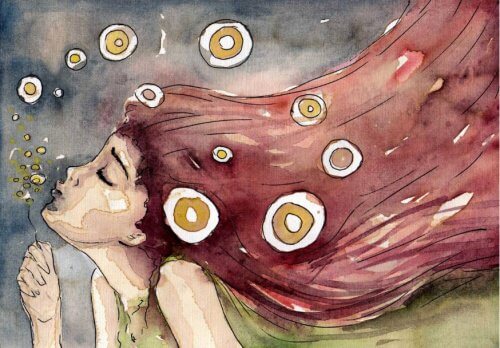Criticism: Happy People don't Gossip about Others


Written and verified by the psychologist Raquel Aldana
Happy people don’t care for gossip. Rather than obsessing about criticism or criticizing others, dedicate your time to improving yourself and bettering your surroundings.
“The individual that dedicates his time to improving himself does not have time to criticize others” – Mary Theresa of Calcutta.
In life, there are a few things that are more exhausting than listening to someone constantly criticizing others.
Not only does it confine you to living inside a well of negative behaviors, but it also makes you feel bad.
The things that busybodies say and do will wear you down, leaving your mind devastated.
Whenever you find yourself in these situations, you have two options: distance yourself or try to help them.
And as the illustrious quote at the beginning of this article points out, there’s nothing more emotionally and vitally weak than people that dedicate their time to criticizing others.
Read also: Your Kids Will Love the Happiness Jar
In this sense, living peacefully has no price, which is why you should always protect your physical and psychological space. You must create a heart free from non-constructive criticism.
Words only hurt when they’re said by people that are important to us, depending on what they say and how they say it.

What other people think of you is their reality, not yours
What other people say about you is their reality, not yours. They know your name but not your story. They have not lived in your skin, they haven’t worn your shoes. All they know about you is what you have told them or what they’ve intuited, but they do not know your angels or your demons.
Some people, either ill-willed or without meaning to criticize, give their opinion on any situation, without being asked for it.
The purpose of these masked criticisms is to do harm, to look down on someone or something, and to enjoy someone else’s worries.
People like this generally have such low self-esteem that they can’t accept themselves or others.
This explains why they so easily judge and label people, which only reflects the truth of how they feel. This shows how they project their own emotional struggles on others.
Even though we think we are able to read what others are thinking, we can’t.
It’s hard enough to understand what you, yourself are thinking, let alone what other people are living, feeling, learning or suffering from.
So you shouldn’t pay any attention to what other people say about you.
Their words live by an illusory reality that they have created in their minds, wanting to know everything. Happy people know better.
“The most unhappy people in this world are the people that worry too much about what others think.”

Read also: 3 Secrets to Happiness from Ancient Wisdom
Happy people face criticism
“I used every stone that is thrown at me to create my own strength” – Elvira Sastre
If you are constantly thinking about the way other people criticize you, you are harming your own well-being and your own emotional balance.
That’s why it’s better for you to dedicate your time to improving yourself and your surroundings.
Your job is not to judge others or to be judged, but rather to worry about correcting your own mistakes, until reaching a greater level of emotional well-being.
If you work on yourself personally, you’ll be winning by gaining sincerity, respect, humility, generosity, and honor.
You can’t try to be perfect, but it is important that you hold onto an attitude of constantly bettering yourself.
This gives you the ability to live life without subjugation, without blackmail and without being dependent on others emotionally. Happy people are not dependent on other people.

Heal the parts of you that are damaged
“Don’t pay attention to what others do, or have stopped doing. Pay attention to what you do, or have stopped doing” – Buddha.
In order to heal your emotional wounds caused by critiques, you must first understand that we are each unique and exceptional people.
With that in mind, the next thing we have to do is to shed the fear of feeling and thinking for yourself.
Other people are the ones who are judging and criticizing, not you. Non-constructive criticism carries the emotional void found within the person who gave it.
Therefore, if that individual does not allow him/herself to grow emotionally, it’s better for you to “let each candlestick hold its candle”.
But, how to face the emotional damage caused by criticism? Let’s take some time to think about this:
- By giving into what other people think or say about you, you end up becoming someone you’re not. Wanting to please others will cost you your identity, which is not healthy at all.
- Are you a good mother? Are you successful? Smart? Good at your job? Do others like you? You need to realize how much energy that you lose by worrying about what others think of you.
- Although you may often times feel like the focus of everybody’s gaze, the truth is, what you do or stop doing, generally isn’t that important to them at all. Other people think about you a lot less than you think they do.
- It doesn’t matter what you do, or how you do it, someone is always going to misconstrue it. Try to live and act as you see fit. Be natural and know that the only path to being at one with yourself, is to do what you feel in every moment.
Also…
“Don’t wait for others to understand your path, especially if they’ve never had to walk it.”
Did you enjoy this article on how happy people are?
Photos courtesy of bruniewska and Chichi Huang
All cited sources were thoroughly reviewed by our team to ensure their quality, reliability, currency, and validity. The bibliography of this article was considered reliable and of academic or scientific accuracy.
- Rodríguez, J. A. P., Linares, V. R., González, A. E. M., & Guadalupe, L. A. O. (2009). Emociones negativas y su impacto en la salud mental y física. Suma psicológica, 16(2), 85-112. https://www.redalyc.org/pdf/1342/134213131007.pdf
- Pereira, M. L. N. (2007). Autoestima: un factor relevante en la vida de la persona y tema esencial del proceso educativo. Revista Electrónica” Actualidades Investigativas en Educación”, 7(3), 0. https://www.redalyc.org/pdf/447/44770311.pdf
- de la Villa-Moral, M., Sirvent, C., Ovejero, A., & Cuetos, G. (2018). Dependencia emocional en las relaciones de pareja como Síndrome de Artemisa: modelo explicativo. Terapia psicológica, 36(3), 156-166. https://scielo.conicyt.cl/scielo.php?script=sci_arttext&pid=S0718-48082018000300156
This text is provided for informational purposes only and does not replace consultation with a professional. If in doubt, consult your specialist.








